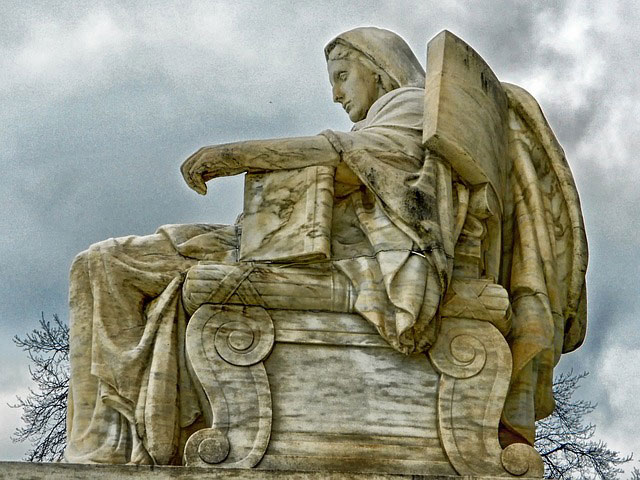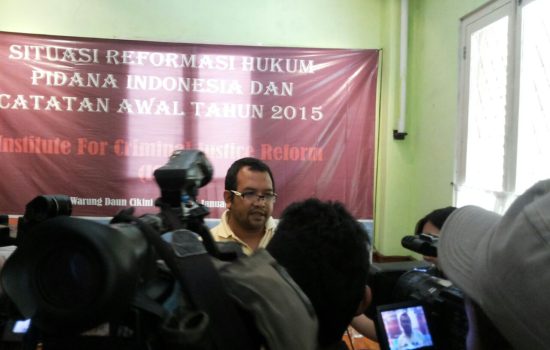The Supreme Court has contravened the basic legal principle of “Lex Specialis Derogat Legi Generali” (specific law prevails over general law) in formulating the limitation of retrial (Peninjauan Kembali) application in the Circular Letter.
In concluding the 2014, the Supreme Court came out with an awful new year present by issuing Circular Letter that limits the submission of retrial application. In essence, the Circular Letter instructs all the district and high court in Indonesia to refuse retrial application that is submitted for more than once by convicted person.
According to Suhadi, Chairman of the Circular Letter formulation team, the Constitutional Court Ruling No. 34/PUU-XI/2013, which declares that the Article 264 (3) of the Criminal Procedural Law Code (KUHAP) on the limitation of retrial application submission is in contradiction with constitution, has been delivered with legal defect as the similar limitation is still can be found in Article 42 (2) of Law No. 48 on 2009 on Judicial Power, and Article 66 (1) of Law No. 14 of 1985 on Supreme Court. Both laws, as Suhardi believed, has not declared unconstitutional by the Constitutional Court.
| Article 24 (2) of Law No. 48 of 2009 on Judicial Power
No retrial application can be submitted against the judgment of a retrial case
Article 66 (1) of Law No. 14 on 1985 on Supreme Court
A retrial application may only be made once (1 time). |
One of the reason of the issuance of such Circular Letter was to respond the request by Attorney General that ask the Supreme Court to immediately issue a regulation to redefine retrial application by death-row inmates. This regulation is important as the General Attorney, Agung Prasetyo, has postponed the execution for two convicted-drug related offence, Agus Hadi and Pujo Lestari, who are currently submitting their second retrial application subsequent after their clemency request is denied.
Insitute for Criminal Justice Reform (ICJR) in view that the provision on the limitation of retrial application under the Circular Letter is not appropriate, as any act to limit human rights must be regulated under a law, as mandated by Article 28J of the 1945 Constitution. Anggara, Chairperson of the Governing Board of ICJR contended that the Supreme Court has contravened the principle of “Lex Specialis Derogat Legi Generali” in formulating the Circular Latter on the Limitation of Retrial Application. Anggara further asserted that two main provisions as the ground to issue the Circular Letter, namely Article 42 (2) of Law No. 48 of 2009 on Judicial Power, and Article 66 (1) of Law No. 14 of 1985 on Supreme Court, are basically regulating retrial application for all type of proceeding (civil, administrative, religion), however, specific to criminal cases, the retrial application is regulated under the KUHAP. “The Supreme Court should take more careful step in finding a break through over a legal principle that has long been adopted by modern states. By violating this principle, the Supreme Court has shown a disobedient act on rule of law principle sets under the 1945 Constitution”, Anggara Expressed.
Although ICJR is strongly disagreeing with death penalty, Anggara contended that the Constitutional Court, through their decision, still considered this sentence is in accordance with the constitution. Therefore, the retrial application submitted by the death-row inmates will not preclude the execution of such sentence. Mr. Anggara also emphasized that KUHAP has clearly regulated that a retrial application still can be submitted although the convicted has been executed, through his/her heirs. Hence, it is such a peculiar policy when the Supreme Court is agreed to fulfill the request made by the General Attorney and the President to issue the Circular Letter, as it has violated number of prevailing legal principle in modern countries.
Moreover, Anggara questioned the General Attorney that is reluctant to execute death-row inmates due to the retrial application, as they possess the absolute authority to whether or not charge the defendant with a death sentence during the trial.
In the midst of poor law enforcement system in criminal justice system in Indonesia, Anggara reminded that the request to charge a person with death sentence must be conducted only under limited circumstances and after caution steps has been taken. Convicted or defendant charged or sentenced to death must be ensured that their rights are fully protected to avoid a misguided judicial practice.




